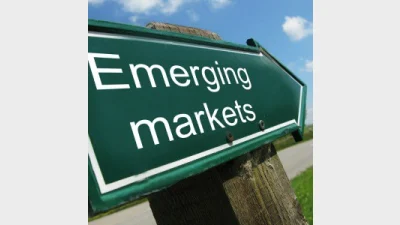Should your clients have emerging markets exposure?



It’s more than fair to say that emerging market (EM) equities have been letting investors down with less-than-spectacular returns over the past five and 10-year periods, as data from FE Analytics clearly illustrates.
But is having some EM equity exposure still a sensible strategy?
As always, when pondering this question, it’s important for investors to remain cognisant of a strategy’s FE Crown Ratings as well as its FE Risk Score.
FE Crown Ratings are a quantitative measure covering the hundreds of thousands of investment instruments that FE collects worldwide. They enable investors to distinguish between funds that are strongly outperforming their benchmark and those that are not.
The top 10 per cent of funds will be awarded five FE Crowns, the next 15 per cent receiving four Crowns and each of the remaining three quartiles will be given three, two and one Crown(s) respectively.
The FE Risk Score, on the other hand, provides investors with a single, easy-to-understand measurement of the riskiness of individual investments or portfolios relative to the benchmark (which will always have a score of 100).
The scoring system uses a minimum of 18 months and a maximum of three years of weekly total returns to measure the volatility of a given instrument.
As pointed out recently by Money Management, the caution exhibited by many investors post the GFC is largely to blame for the underperformance of emerging markets funds, which, historically, have tended to be unpredictable and more volatile.
One of the funds to beat the MSCI Emerging Markets benchmark over 10 years by a wide margin was Aberdeen’s Emerging Opportunities Fund, which boasted a total return of over 100 per cent.
According to Josh Hall, a senior investment specialist at Aberdeen Standard Investments, some emerging market equity exposure is appropriate for most investors’ portfolios.
“Whilst there is no one answer that’s right for all investors, we believe there is a strong case for most investors having a meaningful exposure to EM equities across portfolios,” Hall says.
“These are higher growth regions of the world likely to provide strong returns for investors over the medium to long term.”
Hall also emphasises that the relative underperformance of EM must be considered in the context of the broader economic and market conditions over the last five to 10 years.
“Over this period developed markets have had the somewhat artificial tailwinds of loose monetary policy (low yield curves, QE et cetera) which has meant that for most of the last decade money has been close to free, that is, interest rates have been close to zero.”
Hall explains that this encouraged further borrowing, which was then invested in risk asset markets such as shares and property and this resulted in significant “asset price inflation” in developed markets.
“Locally, we have seen that play out in the housing market, but globally and particularly in the US it’s led to significantly higher equity market prices where current valuations look relatively expensive and close to the peak of previous market cycles,” he says.
“EM have experienced far more normal interest rate conditions over this period and this has meant they haven’t been subject to the same asset price inflation and instead their price movements have been more fundamentally-driven, albeit still providing relatively strong absolute performance since the depths of the GFC.”
Hall also points out that underlying economic conditions, as well as corporate earnings fundamentals, look significantly stronger in EM versus developed markets, and that markets have started to take notice of this over the last two years where the trend has reversed, and EM has outperformed developed markets by a fair margin.
And despite this outperformance, Hall says EM are still trading on significantly cheaper multiples: “On simple valuations measures, such as price to book, EM equity markets are trading at around a 25-30 per cent discount to major developed markets like the US.”
But possibly the most important benefit to consider when it comes to EM equity allocation in a portfolio, Hall says, is the fact that this is the where economic growth is occurring globally - and that’s likely to continue to be the case into the future on a structural basis.
“The two largest EM nations, China and India, today contribute more to GDP growth compared to the four largest developed market economies being the US, Japan, Germany and the UK,” he says.
“Whilst we are all familiar with the China story, India is really just starting on the same journey that China began 20 years ago. This economic growth will generally, although not always, lead to capital market prosperity over time.
“And so, for investors looking for higher returns, a strategic allocation to EM equities will probably do better over time versus a portfolio that doesn’t, particularly given today’s starting point of significantly more expensive developed markets.”
Recommended for you
Marking off its first year of operation, Perth-based advice firm Leeuwin Wealth is now looking to strengthen its position in the WA market, targeting organic growth and a strong regional presence.
In the latest edition of Ahead of the Curve in partnership with MFS Investment Management, senior managing director Benoit Anne explores the benefits of adding global bonds to a portfolio.
While M&A has ramped up nationwide, three advice heads have explored Western Australia’s emergence as a region of interest among medium-sized firms vying for growth opportunities in an increasingly competitive market.
Private wealth firm Escala Partners is seeking to become a leading player in the Australian advice landscape, helped by backing from US player Focus Financial.










